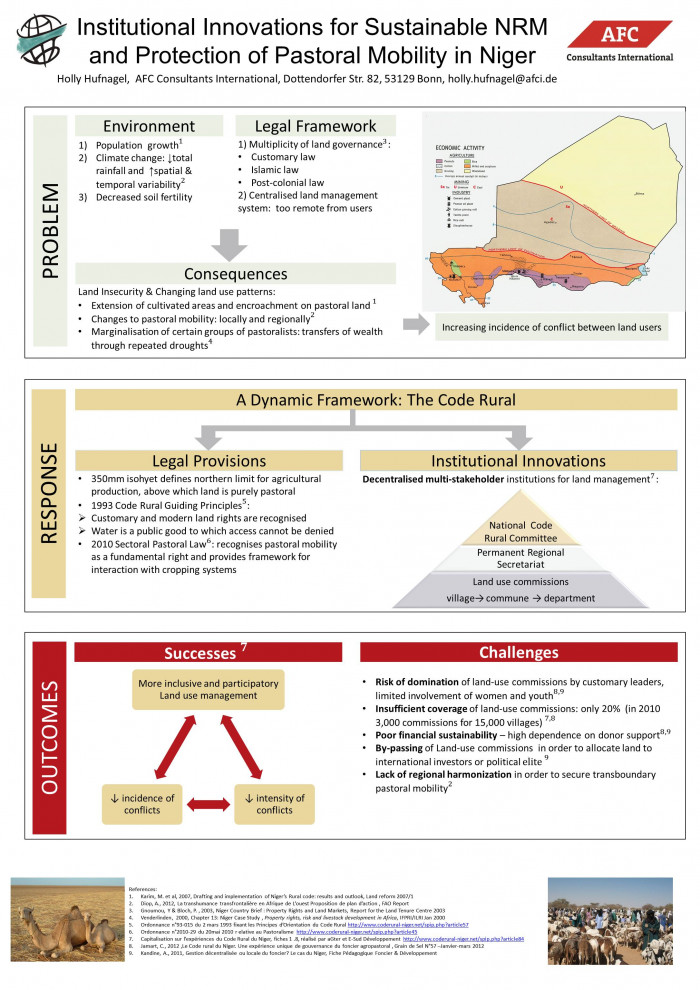
AFC has been working on the establishment of a rural land cadastre in northern Benin since 2011. Clearly recognized land rights are essential in order for smallholders to invest in their farms and adopt long term sustainable practices. Establishing a cadastre is a complex process which takes into account the current legislation and local land use and access patterns. All stakeholders must be included in the process to make sure that none are marginalised- this is particularly important for women and pastoralists. The inclusion of pastoralists is challenging due to their practice of mobility, which although essential for both their livelihoods and a sustainable use of natural resources, means they are not always present in order to participate in the recognition of their rights. Encroachment of farmers on pastoral corridors and pastures has been a growing problem in recent years leading to sporadic conflict between farmers and pastoralists. AFC believes it is essential that pastoralists are fully included in this cadastre process such that their corridors , grazing areas and after points are identified and clearly included in the cadastral maps. We have therefore studied and compared the land access arrangements from the subregion in order to learn from them. Indeed the mobility of pastoralists is beyond the borders of Benin and takes place at a subregional level. Benin receives over 100.000 pastoralists yearly from Niger and Burkina Faso to graze on its pastures. It is therefore crucial to understand the dynamics and land rights framework of the whole region. The Code Rural in Niger is of particular inspiration as it follows both a decentralised and multi-stakeholder approach which explicitly takes into account customary rights and pastoralists rights to access to pasture and water throughout the country. We will therefore be presenting the lessons learned from this approach at the Tropentag Conference in Berlin, 16.18th September, at the Humboldt University. http://www.tropentag.de
The title of our presentation is: “ Institutional Tools for Sustainable Natural Resources Management and Protection of Pastoral Mobility in Niger”
For further question, please contact
holly.hufnagel [at] afci.de
